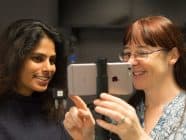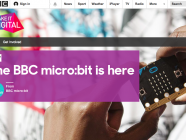The Barcelona Mobile World Congress (Mwc) just ended, and for one week congress organizers succeeded in positively monopolizing the attention of all technology-related media. The Fira Gran Via greeted the major mobile branch novelties, showing newly released products, trends, and innovations. Most of the major manufactures presented new products. Among them Nokia released a new line of low-cost smartphones, Samsung announced the new Galaxy 8 tablet, and Mozilla – the foundation responsible for the Firefox browser – launched its first operating system for mobile devices, Firefox OS, which will appear on ZTC, Alcatel, Huawei and LG mobile phones.
But the Mobile World Congress is not only about watching major keynotes from the most influential Telco and consumer electronics CEOs in the world, it is also a unique occasion for measuring the temperature and observing state of the art of mobile technology and its potential implications for communication. During one of the most interesting keynote speeches of the week, “Connecting the next billions to the Internet,” Mozilla CEO Gary Kovacs expressed his confusion with those who still consider the Web and the mobile Web as two different separated environments. According to Kovacs, the use of the Internet has become so pervasive that companies, Telcos, governments, and media outlets should consider the Internet as an ecosystem, no matter the device used to access it. During the same panel, Stephen Elop (Nokia), Nasser Marafih (Qtel/Ooredoo) and Manoj Kholi (Bharti Airtel) agreed that mobile Internet will play a fundamental role in getting the next billion people online, particularly because mobile is cheaper and its infrastructure can be implemented more easily in developing countries.
The next billion Internet users will come from Africa and South Asia and will be online via their mobile devices, according to Kholi, who provided very clear statistics concerning Papua New Guinea, who has the highest rate of Facebook usage via mobile devices, in addition to seven African countries who can be found in same ranking. Nokia’s Stephen Elop agrees when it comes to emerging countries as the new frontier for Internet development. Nokia used the Mwc to release two low-cost Internet accessible phones and two less expensive devices for its top-quality Lumia series – both in an effort to further access these emerging markets, where often the demand for connected mobile devices is as high as their poverty statistics.
The general impression left by the Mobile World Congress is that we will be constantly connected to the Internet in every situation of our daily life, and we will use mobile devices as a primary access point to the wired world. According to Stephen Elop, smartphones have even become the most important “identity markers,” together with passports and IDs. The Catalan Mobile World Congress presented some of the most concrete future scenarios for the mobile branch to come, for instance NFC payments (purchasing via mobile phones) offered by major service providers such as Visa and PayPal, have seen increased investment as well as some early examples of implementation. Toneconnect, a new Japanese mobile app enabling data and file sharing via audio tones, could potentially pave the way for new and innovative television advertising, where tones sent from the television are then decoded via a smartphone and displayed as links, web pages, or videos. Mobile gadgets are also becoming our first choice when it comes to audio and video consumption. Dolby, for example, is successfully working together with many manufactures to implement mobile devices into their Digital Plus System, which guarantees a much better audio performance on mobile devices. Spotify, the music-streaming service, which keeps getting bigger and bigger after its recent arrival in Italy, allows people to listen to music on the go for free, using smartphones or tablets.
4G Lte will accelerate the convergence of the Web, and its transition into a mobile centric platform. Soon we will expect to have an uninterrupted high-speed connection accessible from all of our electronic devices. Ericsson is even testing its Window of Opportunity, the first prototype of a connected window, meaning a typical glass window. In this scenario, transparency and free competition will be central. According to Mozilla’s Gary Kovacs, the Web (mobile or not) must stay free in order to give everyone a chance to participate, join the conversation, speak, create and possibly sell their ideas. Content available online has grown with a 1000 percent rate in the last ten years, says Kovacs: the Open Web must ensure that not only a few corporations will be able to decide what information and content will be at one’s disposal. Openness and availability will connect the next billions to the Internet and, possibly, let the world go mobile.
Photo credits: MozillaEu / Flickr CC
Tags: 4G, apps, Firefox, iPhone Applications, Lte, Mobile applications, mobile Internet, Mobile News Media, Mobile World Congress, Mozilla, Mwc13, Nokia, Online App for Journalists, smartphones, tablets














































